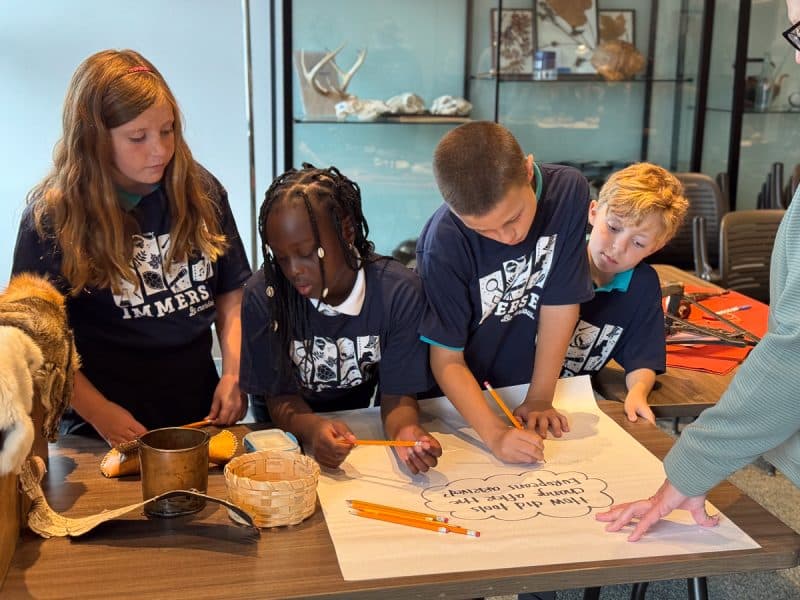Rapid Blog: I’m white, I’m racist, and so is our immigration system
This op-ed is part of Rapid Growth's Rapid Blog series, which highlights the voices of leaders making positive change in Grand Rapids. This week's post from Attorney Liz Balck Monsma is a response to President Trump's removal of Deferred Action for Childhood Arrivals (DACA).

This op-ed is part of Rapid Growth's Rapid Blog series, which highlights the voices of leaders making positive change in Grand Rapids. This week's post comes from Liz Balck Monsma. In 2016, Liz founded a solo law practice that focuses on family and humanitarian immigration cases. She was formerly the Legal Services Director at Justice for Our Neighbors, a non-profit immigration legal services organization. Born and raised in Grand Rapids, Liz lives in Eastown with her family. Liz's post comes this week as a response to President Trump's removal of Deferred Action for Childhood Arrivals (DACA). Balck's essay is her own, and does not necessarily reflect the views of Rapid Growth, or its parent company, Issue Media Group.
It’s easy to get caught up in the defamatory and often false rhetoric about immigration. I wince each time one of our leaders refer to human beings as illegals. Our president said that Mexican men coming to the U.S. are rapists. My own family members ask why today’s immigrants don’t just get in line—like our ancestors did without admitting how vastly different the immigration system was in 1800s compared to today.

Criminalizing and dehumanizing immigrants isn’t about ensuring that people follow the law. If that was the case, we’d call actual, convicted rapists, illegals. But we don’t. We save that language for immigrants, particularly immigrants of color.
For many, it seems that our collective ideas about immigration come down to deciding: which set of immigrants can make us richer, more homogeneous, more Christian, whiter? So, to really talk about immigration, we need to be honest about what drives policy and our own personal thoughts on immigration: racism, xenophobia, colonization, slavery, greed and white saviorism.
(If that statement comes as a shock to you, start Googling the Naturalization Act of 1790, the Chinese Exclusion Act of 1882 or Operation Wetback in 1955.)
A year ago, I’m ashamed to admit that I’d never start a conversation about immigration by first talking about racism so bluntly. But today, right now, I can’t start it any other way. I’m white, I’m racist and so is our immigration system.
Last week, the administration rescinded DACA—Deferred Action for Childhood Arrivals. In 2012, when DACA was announced, we knew that a stroke of a pen brought it to life and a stroke of a pen would kill it. Ending DACA was not a surprising political move by our current administration, but it was devastating nonetheless. When a program is cut, that is by every measure highly successful, we have to ask ourselves why? But with the largest number of DACA holders hailing from Mexico, El Salvador, Guatemala and Honduras, I think we know the answer.
Despite some popular opinion that DACA is a simple form and status, the application process is quite complex. Before September 5th when President Trump reversed the legislation, DACA applicants had to achieve the following: pay a $495 filing fee, prove that they entered the U.S. before age 16 and have lived here since June 2007, are currently attending or have graduated from school or the military, and that they were under age 31 as of June 2012. Phew. On top of all of that, applicants also had to show that they hadn’t committed a serious crime or that they didn’t “pose a threat to national security”, a highly vague and discretionary catchall bar to receiving DACA.
In return, if approved, DACA recipients received a two-year work permit and were placed on the lowest level of Dept. of Homeland Security’s deportation list, also referred to as “Deferred Action.” That’s it. No green card, no pathway to citizenship, no ability to petition for family members. DACA is a far cry from amnesty.
I worked at a local non-profit when DACA was first announced in June 2012. We worked with other groups to hold workshops to help West Michiganders apply for DACA. We discussed the risks with each young adult, child and parent. In almost every case, the applicant wanted to move forward. Everyone knew that a work permit would pull them—young and primarily Latinx—out of the shadows of undocumented America and into the classroom, military and workforce, if only for a few years. And that was worth the risk.
After receiving his DACA work permit, one of my “visa overstay” clients applied for a social security card and then driver license, which made him eligible for auto insurance. For the first time ever, he could legally drive his children to school. He attended seminary and later, I heard that he had started a consulting business and then accepted a position at a church. Without DACA, that path would have been impossible. Not to mention his ability to perform tasks we take for granted like driving, taking out a loan or opening a bank account.
Last week, one of my DACA clients told me that her nine-year-old daughter witnessed her husband being apprehended by ICE during an early morning raid at their home. After my client’s husband was released from the detention center and now with the latest DACA news, the child refuses to let either parent go anywhere without her. This child, our nation’s child, is terrorized by the thought that ICE will violently and suddenly take her parents away at any moment. The entire family is receiving counseling.
Without acknowledging the very real human toll that our policies take on our communities, our conversation about immigration remains stale, overly punitive, and biased. Instead, what if white Americans did the work that we should have done after slavery was abolished? What if we used our white privilege to demand just and humane immigration laws for everyone, and not just the DACA kids? Our brothers and sisters need our voices, our votes, and our action, not our implicit biases, apathy or tears.








